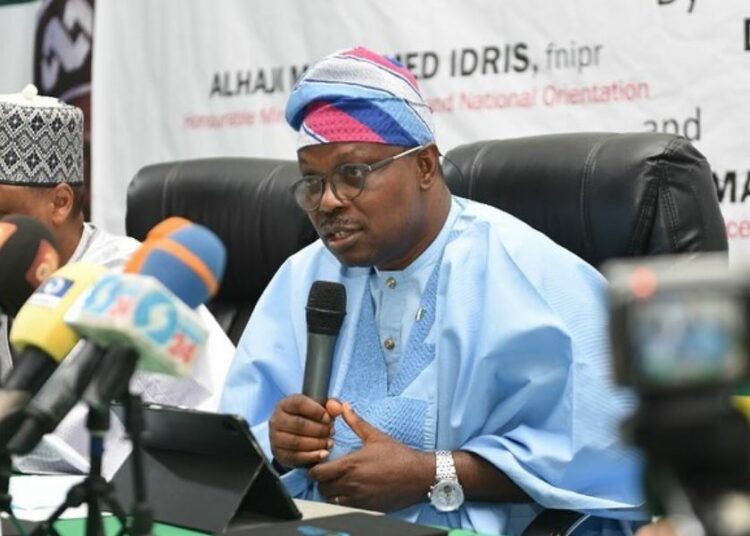The Minister of State for Health and Social Welfare, Dr. Iziaq Salako, has said that about 18 million malaria cases were averted annually through ongoing interventions under the National Malaria Eradication Programme (NMEP).
The minister disclosed this on Thursday while delivering his inaugural address at the second day of the 2025 Nigeria Health Sector-Wide Joint Annual Review (JAR), themed “Strengthening Nigeria’s Health System Resilience for Sustainable and Inclusive Care” in Abuja.
He noted that the gains were made possible through the distribution of over 63 million insecticide-treated nets (ITNs) between 2021 and 2023, with about 70 per cent of Nigerian households now having at least one net, adding that 51 per cent of pregnant women reportedly received intermittent preventive therapy for malaria.
The minister said the results reflected the country’s commitment to tackling preventable diseases while improving access to quality healthcare at all levels.
“Despite the challenges, our health system continues to record significant milestones. Malaria cases averted are estimated to be about 18 million annually, maternal and child deaths are reducing, and more women are accessing skilled birth attendants,” Dr. Salako said.
He also highlighted progress in several key health indices. According to the 2023 Nigeria Demographic and Health Survey (NDHS) preliminary results, maternal mortality has declined from 576 to 512 deaths per 100,000 live births, while under-five mortality has reduced from 132 to 110 deaths per 1,000 live births.
Other indicators showed improvement in skilled birth attendance (now at 53%), full immunisation coverage (39%), and modern contraceptive use (20%).
However, Salako admitted that the country still faces “formidable challenges,” including low health financing, poor infrastructure, and a high doctor-to-patient ratio of 1:5,000, far below the World Health Organization (WHO) recommendation of 1:600.
He lamented that government health expenditure stands at just 5.2 per cent of GDP, compared to the 15 per cent Abuja Declaration target, while out-of-pocket payments remain at 71 per cent, pushing millions of Nigerians into poverty.
The minister assured that the government was determined to reverse these trends through the Nigeria Health Sector Renewal and Investment Initiative (NHSRII), which adopts a sector-wide approach to ensure synergy among government, partners, and civil society.
Among key interventions, he cited the expansion of the Basic Health Care Provision Fund (BHCPF), which has improved absorption capacity from 45 per cent in 2019 to 78 per cent in 2023, and the National Health Insurance Authority (NHIA), which now provides coverage for over 20 million Nigerians through pooled care mechanisms.
He further disclosed that over 37,000 health workers have been employed since 2023, with plans to address brain drain through a new Health Workforce Migration Policy, as well as rural retention incentives and diaspora engagement.
Dr. Salako also revealed the Power for Health Initiative, aimed at ensuring reliable electricity in health facilities through green and hybrid energy solutions, and a push to strengthen the Nigeria Digital Health Initiative (NDHI) to improve service delivery and data management nationwide.
While acknowledging the “commendable progress” made, the minister said Nigeria’s pace of improvement is still insufficient to meet the health needs of over 230 million citizens.
He urged all stakeholders, federal, state, local governments, and development partners to redouble efforts toward achieving universal health coverage (UHC) and a truly resilient Nigerian health system.
“Only healthy people can produce a prosperous, secure, and great nation. Let us join hands to deliver health to our people and make Nigeria great again,” Salako said.





